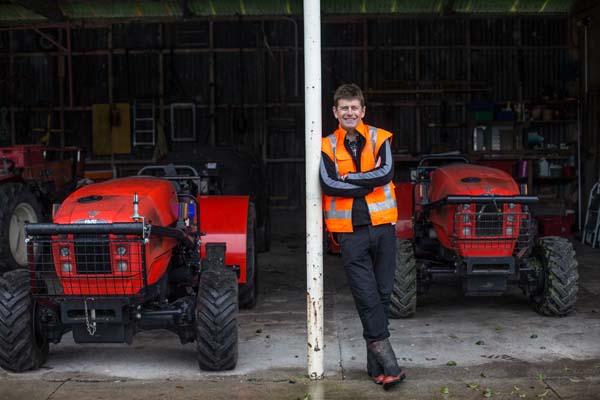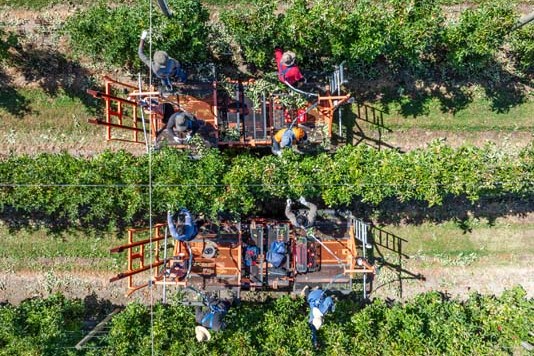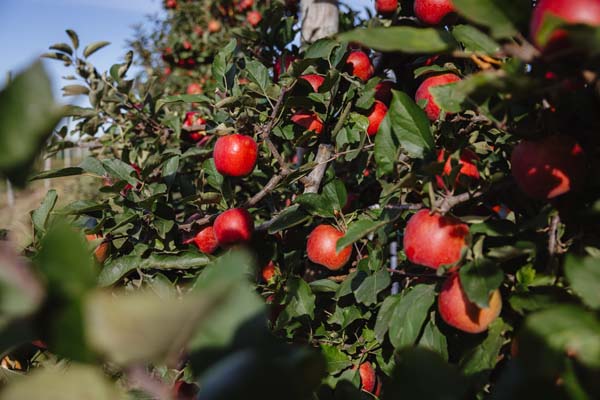Taking out a contract
Canterbury couple Ben and Emma Falconer are making good progress in their current contract milking role but their first foray into the system taught them some lessons. Anne Lee talked to them about their move from farm management to contract milking.
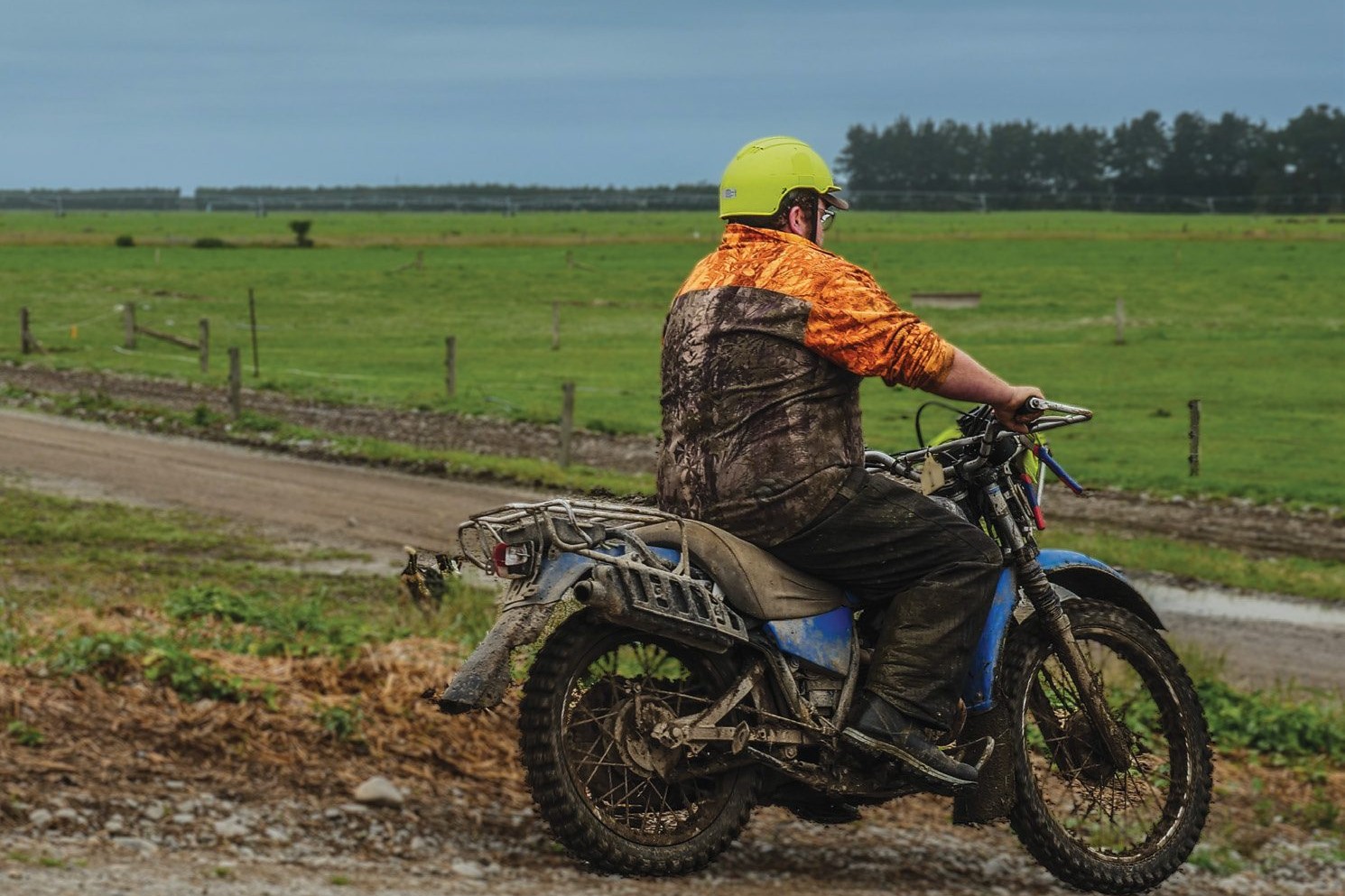
Ben Falconer admits his first move into contract milking was driven more by ego than a solid well-informed plan.
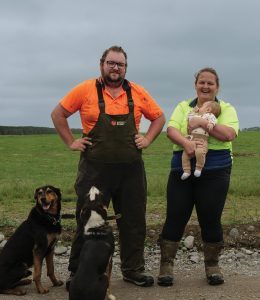
It turned out to be two years of chalking it up to experience for him and his wife Emma and while it’s not something they ever want to repeat, the lessons they learned helped them get on the right pathway with the next job.
“I think the ego of wanting to go contract milking got into my head. I was adamant I needed the title of contract milker and when we got offered a job, I thought that’s what we needed for progression.
“But we didn’t do our due diligence and once we were knee deep in it, we realised the contract wasn’t that good.
At 28, Christchurch born and bred Ben, has been dairying since he left school at 17 – apart from a year spent at Lincoln University earning a Diploma in Agriculture and a short stint in sheep and beef for his practical work.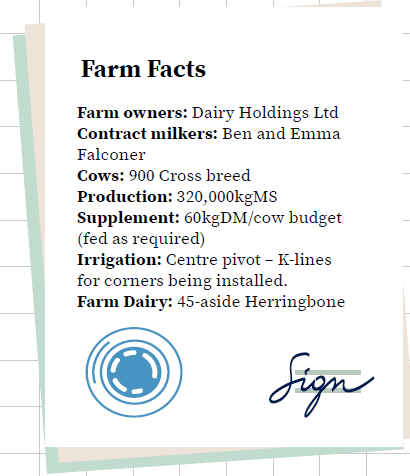
He’s worked for some leading Canterbury dairy farmers and operations and he and Emma are now in their second season contract milking for Dairy Holdings Ltd (DHL) on a 900-cow farm near Dunsandel.
They’re happy with their progression trajectory and are quick to point out that contract milking can be a lucrative way to build cash and equity when you’re aligned with the right people, have a good contract, as they have now, and are prepared to work hard.
But their experience with their first contract milking job serves as a cautionary tale on being well prepared and doing your homework.
“We survived two years there but only because Emma (a qualified early childhood teacher) got a full-time job at a preschool.”
It was a small farm – just 240 cows and Ben operated it on his own with help from his trusty dogs during the week and Emma at the weekends.
He’d hoped relief staff would be easy to find due to its location but they weren’t, so months went by without a break.
Opportunities they thought would be there to grow didn’t eventuate.
“None of that sort of thing was written down in the contract and looking back we didn’t ask the right questions – we should have been more specific with those details.
“We didn’t go backwards thanks to Emma taking on her job and there was a lot of learning – good and bad so I guess we got something out of it but there are better ways to learn,” he says.
The message is – do your homework well, Ben says.
Their job with DHL as contract milkers on the 900-cow property sees them receive a set contract payment per kilogram of milksolids (kg MS) produced along with the ability to rear stock but they do share in more costs than just those associated with milking.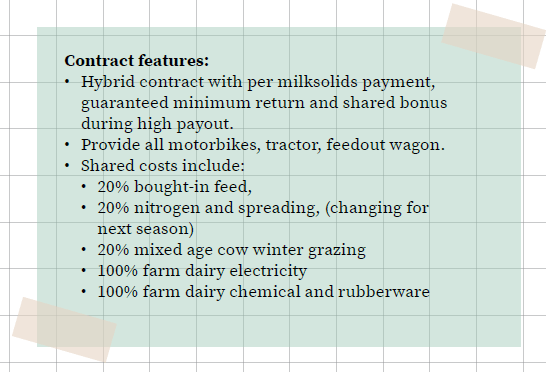
Ben and Emma receive a monthly contract payment per kg MS based on 85% of the expected milk production with a washup payment made at the end of the season.
“It means we know what our income is each month so it makes it easier to budget and we’ve also got income over the winter months. That was important in the first season when you’ve got to pay staff and have outgoings over those first couple of months but would otherwise have no income.”
They share in the good times with a one-off payment of $10,000 if payout exceeds $6/kg MS. That’s paid in the season following, providing they’ve renewed their annual contract and remain on the farm.
But they’re protected if something untoward happens to affect production too, with a guaranteed minimum return in the contract.
The nature of the contract means they share in more of the expense side of the budget than a straight contract milking rate.
“We basically provide everything that moves – tractors, wagons, bikes and people.”
But they also pay 20% of several costs.
“The nitrogen costs payment has been reviewed and next year we’ll just pay the full cost of spreading it rather than any portion of the fertiliser.
“DHL has years of data on what these farms cost to run and what they produce and they’re always analysing and reviewing that so you’re going in with a lot of data.
“The contract is very transparent – it’s all laid out so there’s no surprises – just how the season goes and – well, that can bring its own challenges and that’s the risk you take in being a contract milker.”
Ben says the major drawcard on the contract is the ability to rear youngstock for sale or to rear them and lease them back in to the herd.
“Our aim is to make a profit – an EBIT (earnings before interest and tax) of $45,000 out of the cash returns on our business but we haven’t quite cracked that yet.
“The equity we can make from the stock side – that’s what we’re about to see coming in now and that’s the other bit of the puzzle – it makes the whole picture.
“We have 70 R2s (rising two-year-old) with the bull at the moment that we’ve reared and next season we’ll get a lease return from them to add to the income side of our budget.
They get 100% of the bobby calf return and have also reared 40 Jersey bull calves this season for external sale.
The R2s will owe them about $700 each by the time they come into the herd.
Ben and Emma have paid rearing costs that include DHL’s grazing charges once calves get to weaning weights.
DHL has its own grazing properties with no stock bought-in from outside the operation.
“So we make some cash income from the calves we sell, build equity in the value of the R2s and cows as
they go into the herd plus we get the cash income from their lease.”
“That’s what will help make us bankable with whatever we do next.”
The couple came upon the DHL job through a connection with DHL supervisor Mick O’Connor.
“It’s very important to be aligned with who you’re working for and with. Running a system one system might not be for everyone but we talked a lot to Mick and really worked at understanding everything about the contract and the farm before we signed up.”
There had been some tough times last season with Mycoplasma bovis testing due to a long-gone but suspected tracer animal having been on the farm.
They were all clear but the timing meant they couldn’t send calves or culls off and while there was supplement from MPI to compensate, they were down on production and there was a lot of added stress. Last season’s mating went very well though – they increased the six-week in-calf rate by 14% to 78% and dropped the empty rate from 18% to 8%.
“I had hoped the extra cows calving earlier this year would have meant a good increase in milk but the season has been terrible for growing grass.”
The dull, dreary and unseasonal wet days have meant lower irrigation costs though.
“There’s usually a positive for everything somewhere,” Ben says.
He’s had two staff move on since spring – both for progression but it’s meant like most farmers staffing has been stressful too this season and the workload’s been high on those left.
“We’re saving on wages too, I guess, but becoming an employer and taking on the staffing side of it isn’t to be underestimated when you’re thinking about going contract milking.
“It’s a massive part of it.”
There’s increased office time in managing payroll – something Emma does using Smartly – formerly SmartPayroll and then there’s the financial aspects of running your own business – paying GST, managing accounts and monitoring the budget.
They use Xero for their accounts and Ben admits he’s not a great fan of sitting down at the computer.
“When you’re a farm manager you’ve got the farm owner to fall back on but when you’re a contract milker the staff side of it – it’s all on you.
“You’ve got to manage different personalities and make sure people can work together.”
Ben’s a people person and doesn’t have difficulty communicating and says he learned a lot about treating people well from his former employers Graham and Adele Wells when he was a farm manager.
“It’s about taking an interest in people – they’re not just there to milk the cows.”
Making people feel comfortable and valued is important and it’s something he’s good at with one of his employees nominating him for a monthly DHL award because he’d made them feel like part of the family. Over time the couple’s goals are changing and where they once thought herd owning sharemilking would be the next step, they’re contemplating other options now. The birth of their first child Beauden in October has given them a new perspective.
“We’re not closing ourselves off to any options – the sky is the limit for us and we can go as far as fast as we like or take it a bit more slowly and get some balance back.”
That’s the beauty of the options within dairying, he says.



